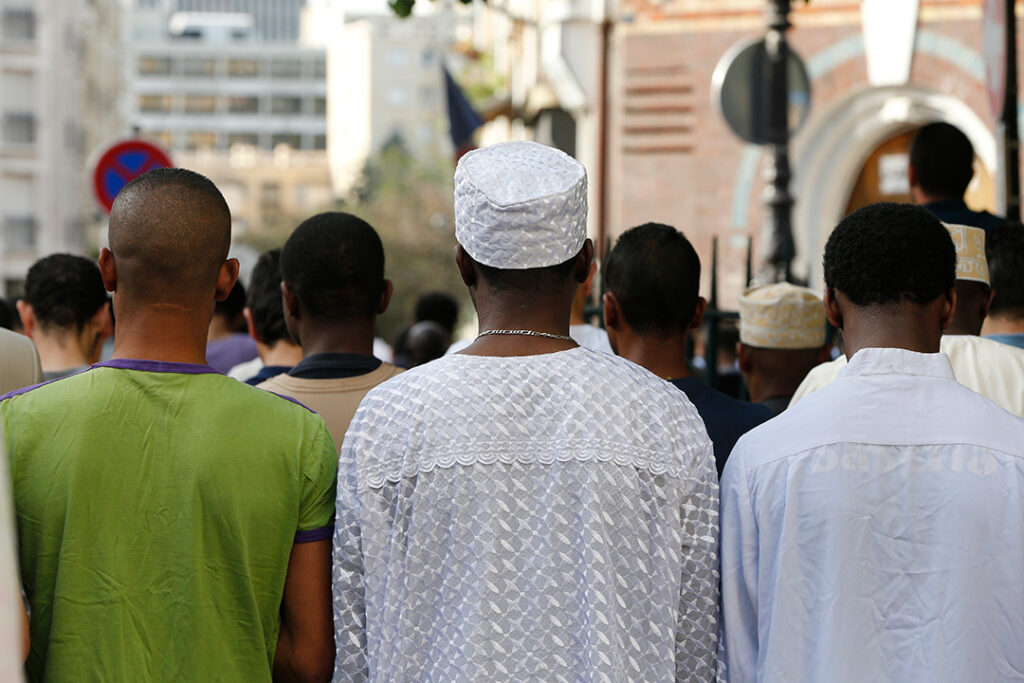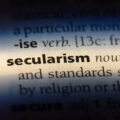French secularism and the Muslim perspective
French secularism and the Muslim perspective
In light of a new survey, this article looks at how France is struggling to balance its notions of secularism with the place of Muslims in French society.
Religion in France, particularly Islam, has once again been thrust into the spotlight. This time, a survey by The Institut français d’opinion publique (The French Institute of Public Opinion, Ifop) exposes a stark gap between how the Muslim community and broader French society understand and enforce secularism. Conducted on behalf of the secular Franco-Arab channel Elmaniya and released in December 2023, the survey highlights a stark contrast in views on issues like religious attire and the place of religious practices in public life. These findings reflect a deep-seated division within French society on matters of identity, integration, and the freedom of religious expression.
Secularism is Islamophobic?
The principle of secularism, or ‘laïcité’ in French, has been a cornerstone of the French Republic and ensures the state’s neutrality towards religion, guaranteeing both freedom of thought and religion. However, 78% of French Muslims perceive this secularism as discriminatory and even Islamophobic, revealing a significant disconnect with the general French perspective, which often sees secularism as under threat and calls for its stricter enforcement.[1] This divergence in views is further highlighted by the controversy surrounding religious symbols and clothing, such as the Islamic veil and the abaya. For example, the French government’s 2023 ban on wearing the abaya and headscarves in schools is perceived as discriminatory by many Muslims, contrasting sharply with broader public approval While their stated intention may be to preserve a neutral learning environment, the practical effect of these bans is the singling out and restriction of the religious expression of a specific group, contributing to the perception of Islamophobic sentiment within the French interpretation of secularism.[2]
The survey also sheds light on the religiosity among French Muslims, particularly the youth, revealing a notable dedication to Islamic practices. In contrast with general trends of secularisation in French society, there is a pronounced adherence to Islam among Muslim youths. This is evidenced by a high percentage of young Muslims practising their religion and valuing its influence on various aspects of their life, from dietary choices to dressing and even political and social affiliations.[3]
Moreover, the responses indicate a strong preference among Muslims for a more accommodating approach to religious practices in public spaces, including schools and sports. They advocate for the allowance of religious symbols and the provision of religious holidays, reflecting a desire for greater recognition and integration of their faith within the French secular framework.[4]
Critics, including Florence Bergeaud-Blackler, a researcher at Centre national de la recherche scientifique (the National Centre for Scientific Research, CNRS), argue these findings reflect the growing influence of conservative Islam in shaping the attitudes and behaviours of French Muslims towards a more pronounced religiosity.[5] This development raises questions about the role of religion in French public life and the challenges of integrating diverse religious practices within a secular state framework.
Learning from the UK
A recent article by scholars H. A. Hellyer and Rim-Sarah Alouane on the abaya ban offers a teachable comparison, presenting Britain as a case where coercion in a multi-faith society is seen as counter-productive. In 2004, France imposed a ban on conspicuous religious symbols in public schools to uphold secularism.[6] In August 2023, this ban was extended to include abayas and qamis in public middle and high schools, a decision affirmed by France’s highest administrative court in September 2023.[7] The UK’s handling of a similar situation involving the jilbab was different. It balanced religious freedom with communal harmony rather than taking a more confrontational approach. In contrast to France’s total ban on abayas in public schools, Britain addressed a similar issue case-by-case. The British approach emphasised local solutions and balancing religious freedom and school uniform policies, demonstrating how coercion within a multi-faith society is counterproductive.[8]
Hellyer and Alouane highlight that “the very idea of such dress codes is to promote a sense of community and inclusivity, while reducing the distraction of fashion and differences of clothing for young people.”[9] This showcases the UK’s efforts to balance religious freedom with communal harmony, a stark difference from France’s more confrontational approach. The British case emphasises the importance of embedding discussions in local dynamics and recognising the fundamental value of the freedom to manifest religious belief, elements that appear to be lacking in the French context.
France’s recent enforcement of the abaya ban, upheld by the Conseil d’État, has sparked debate over its potential for racial and religious profiling, given the difficulty in proving a garment’s religious significance.[10] This situation reflects the broader challenges facing France’s secularism model, which arguably needs to balance state neutrality towards religion and respect for individual freedoms.
The findings of the Ifop survey reveal the increasingly difficult relationship between Islam and secularism in France. The challenges of accommodating religious diversity within a secular republic call for a more balanced understanding and dialogue that respects religious freedom while maintaining the Republic’s secular principles. This balancing act remains a major challenge to France’s ongoing discourse on religion, identity, and integration and also highlights the need for a more inclusive and empathetic approach to governance in a multi-faith society.
Sources
[1] 78 % des musulmans considèrent que la laïcité française est islamophobe
[2] France to ban wearing abaya dress in schools: Minister
[3] Un sondage choc sur la laïcité et la place des religions secoue la France
[4] Un sondage choc sur la laïcité et la place des religions secoue la France
[5] 78 % des musulmans considèrent que la laïcité française est islamophobe
[6] Ban on Head Scarves Takes Effect in France – The New York Times
[7] French court upholds ban on girls wearing abayas in schools | France | The Guardian
[8] Observers of France’s abaya ban should look to Britain for a sensible example
[9] Observers of France’s abaya ban should look to Britain for a sensible example
[10] Observers of France’s abaya ban should look to Britain for a sensible example






